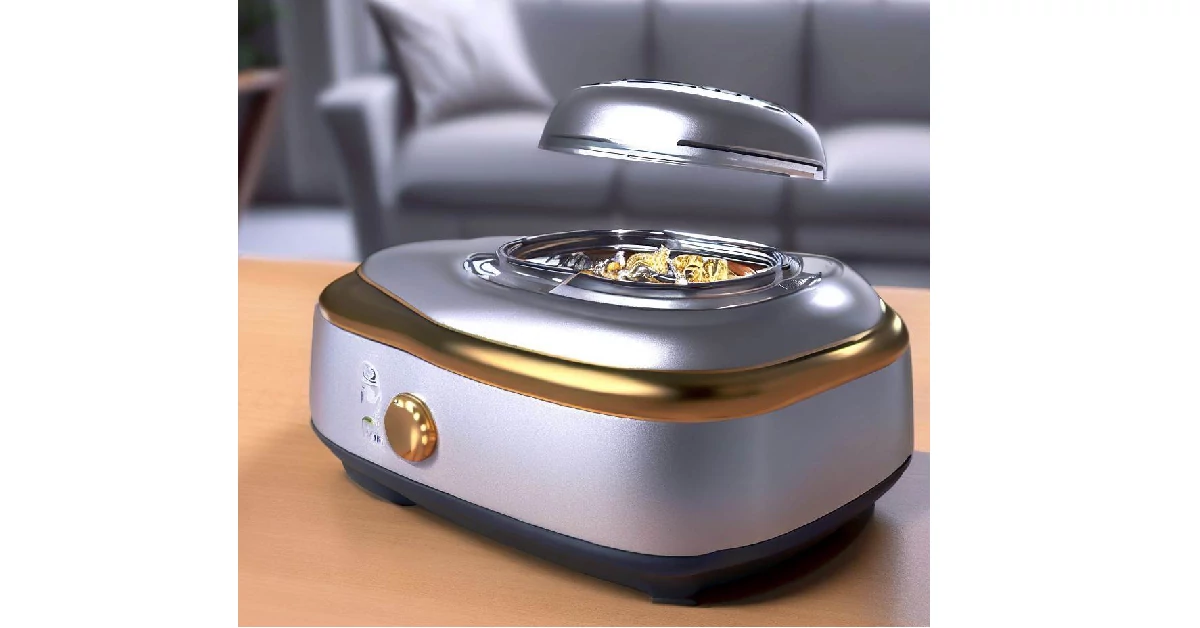Have you ever looked down at your favorite watch and noticed it’s looking a little worse for wear?
Maybe it’s lost its shine or has a few scratches that just won’t buff out. It’s easy to overlook the importance of regular timepiece cleaning, but neglecting this crucial step can lead to irreversible damage and costly repairs. In this article, I’ll explore the different types of materials and cleaning methods, the tools and products you’ll need, and special considerations to prevent damage. We’ll also discuss the signs that your timepiece needs professional cleaning and maintenance. So, grab your favorite watch and let’s get started on giving it the TLC it deserves!
Key Takeaways
- Regular cleaning of your timepiece can prevent excessive wear, maintain its value and performance, prevent damage, prevent rusting and tarnishing, and preserve its beauty.
- Different types of jewelry require different cleaning methods based on their materials, so please know what your jewelry is made of before attempting to clean it.
- Using the right tools and products such as a watch cleaning kit or ultrasonic cleaner can help maintain the shine and good condition of your timepiece.
- When cleaning your timepiece, use the appropriate cleaning techniques and products for the material, avoid submerging it in water, and consider taking it to a professional if necessary.
- Signs that your timepiece needs professional cleaning include loss of accuracy, visible dirt and grime, water damage, scratches and scuffs, difficulty winding or setting, visible dust or moisture inside the case, and foul odor.
Importance of Regular Timepiece Cleaning

Prevent Excessive Wear
Everyday pollutants, soaps, and perfumes can become embedded in the watch bracelet, causing excessive wear and requiring premature replacement of the bracelet. Cleaning the watch case and bracelet on a regular basis can keep the quality of the watch up to manufacturer standards.
By keeping your watch clean, you can prevent unnecessary wear and tear on your timepiece.
Maintain Value and Performance
Having your watch serviced by a qualified watch professional on a regular basis will help maintain its value and performance. Regular cleaning and maintenance can help prolong the life of your watch and keep it running smoothly.
It’s important to have your watch serviced by a professional to ensure that it’s properly maintained and in good working order.
Prevent Damage
Watches need to be inspected for weakened or damaged bracelet pins. If the pins are not checked and replaced, any worn pins could potentially cause loss or damage to your invaluable timepiece. By having your watch serviced regularly, you can prevent damage and ensure that your watch is in good condition.
Prevent Rusting and Tarnishing
Frequent cleaning could benefit your watch’s appearance and functionality by preventing issues from rusting, tarnishing, or other forms of damage. By keeping your watch clean and free of dirt and grime, you can prevent rust and tarnishing from occurring.
Preserve the Beauty of the Piece
A good cleaning makes even the oldest piece look as good as new quickly. You’ll be reminded why you loved the jewelry in the first place when it sparkles in the sunlight. A professionally cleaned timepiece looks high-end and can have less work to attempt to do yourself.
By keeping your watch clean, you can preserve its beauty and ensure that it looks as good as new for years to come.
Frequency of Cleaning
The frequency of cleaning a timepiece depends on how often it is worn and the environment in which it is worn. If the watch is worn daily or in a dusty or dirty environment, it should be cleaned more frequently.
Ultrasonic cleaners are optimal for combating the toughest grimes and soils on watches with the utilization of frequencies above the range.
Ultrasonic solutions developed specifically for watch cleaning, such as L&R’s #111 Waterless Watch Cleaning Solution Ammoniated, will provide a thorough cleanse that could never be achieved with a rag, soap, and water.
How to Clean Your Timepiece
Cleaning a watch is a pretty simple process. First, pour your preferred cleaning solution into the tank, insert your watch bracelet into the machine, and turn it on. High-frequency vibration cleaners are also available for cleaning jewelry, watches, and glasses.
It’s important to follow the manufacturer’s instructions when cleaning your watch to ensure that you don’t damage it.
Types of Materials and Cleaning Methods
When it comes to cleaning your jewelry, it’s important to know what materials it’s made of in order to properly care for it. Here are some tips on how to clean different types of jewelry:
1. Precious metals: If your jewelry is made of precious metals like gold, silver, or platinum, use an ultra-soft brush, microfiber cloth, or your hands to clean it. Avoid submerging the piece in water to prevent significant damage to the jewelry. If you’re unsure about how to clean your specific piece, contact the dealer or manufacturer for advice.
2. Stainless steel: Wipe down your stainless steel jewelry with a soft cloth to remove initial layers of dirt, dust, or grime. Fill up a sink basin or clean bowl with lukewarm water and add a drop of antibacterial dish soap to dissolve grease. Soak the jewelry for a short time and gently wipe it with a cloth. Use a soft cloth to wipe down the inside of the band. Give it a deep clean once a month if you wear it every day.
3. Uncommon material case constructions: If your jewelry has an uncommon material case construction, like wood or acrylic, contact the dealer or manufacturer to learn how best to clean it.
4. Jewelry strap: Use a small, soft brush, like a toothbrush, and a gentle soap, like hand soap or Dawn-brand dish soap, to clean the strap. Avoid submerging the strap in water to prevent significant damage to the jewelry.
5. Jewelry cleaning supplies: While cleaning your jewelry can do a lot of good for it, cleaning the inside of a watch is something that should be left to a trained person, like a watchmaker. Esslinger carries a wide selection of jewelry cleaning supplies for everyone from jewelry makers to hobbyists.
Cleaning Your Jewelry at Home
Cleaning your jewelry at home is possible, but it’s important to take care when doing so. Here are some tips for cleaning your jewelry at home:
- Basic care at home: Using a clean, dry cloth, wipe any sweat or dirt off your jewelry. If your jewelry has a leather strap, be careful as soap can crack and dry out the leather. After wiping the leather band down with a soapy cloth, use a leather conditioner.
- Water-resistant jewelry: If your jewelry is water-resistant, fill a bowl with warm soapy water. Dip a soft-bristled toothbrush into the mix and scrub the jewelry. If the jewelry has a metal strap, make sure to get it dry after cleaning.
- Non-water-resistant jewelry: For jewelry without water resistance, use a dry soft toothbrush to physically brush up any debris, and then clean it up with a cloth.
- The kit: A jewelry-specific brush or a soft-bristled toothbrush, toothpicks, and a clean microfiber cloth.
It’s important to follow any direction from the manufacturer and/or speak to your authorized dealer concerning specific cleaning instructions. If you have luxury jewelry, it’s recommended to take it to a professional for thorough cleaning and maintenance.
With these tips, you can keep your jewelry looking its best for years to come.
Tools and Products for Cleaning Timepieces
Cleaning your timepiece regularly is essential to maintain its shine and keep it in good condition. Here are some tools and products that you can use to clean your timepiece:
Watch cleaning kit: A watch cleaning kit is an all-in-one solution that includes a cleaner gel spray, microfiber cloths, and other tools to clean all types of watches and jewelry, including metals, crystals, and rubber.
Ultrasonic cleaning baskets: Ultrasonic cleaning baskets are mesh baskets that can be used to clean watches and jewelry. They come in a set of three and are available in different sizes.
Ultrasonic cleaners: Ultrasonic cleaners are machines that use high-frequency sound waves to clean watches and jewelry. They are available in different sizes and can be used to clean a variety of items.
Steam cleaners: Steam cleaners are machines that use steam to clean watches and jewelry. They are available in different sizes and can be used to clean a variety of items.
Jewelry cleaning machines: Jewelry cleaning machines are available in different types, including steam cleaners and ultrasonic cleaners. They can be used to clean a variety of jewelry, including watches.
Jewelry cleaning wipes: Jewelry cleaning wipes are designed to clean metal watches and other jewelry. They are effective at cleaning dirt and oils from regular wear and can be used to clean multiple pieces.
Gold and silver polishing cloth: A gold and silver polishing cloth can be used to buff out fingerprints and add a finishing luster to watches and other jewelry.
Common Mistakes to Avoid
When cleaning your timepiece, it’s important to avoid some common mistakes. Here are some of them:
Using abrasive materials: Anything that could scratch your watch, from a dish scrubber to a paper towel, should be wholly avoided.
Not knowing what your watch is made of: This is the #1 mistake that you can make when it comes to cleaning your jewelry, and it doesn’t even have anything to do with the cleaning process.
Cleaning it while it’s on your wrist: You should avoid trying to clean your watch while you’re wearing it. First of all, it’s nearly impossible to do a decent job when the strap is in the way.
Not cleaning it frequently enough: “The number one mistake we see is not cleaning pieces frequently enough,” says Doyle. “Rings come in completely caked with lotion, and with dirt under the prongs. This can compromise the settings and can damage certain stones.
Not seeking professional care: Cleaning your watch at home should never replace professional care. Instead, it’s something you should think of as a maintenance practice between the thorough cleanings that only an expert jeweler can provide.”
Preventing Damage and Special Considerations
Cleaning your jewelry is an important part of maintaining its beauty and quality. However, it is essential to take special care when cleaning your timepiece to prevent damage. Here are some tips to help you prevent damage and keep your jewelry looking its best.
Preventing Damage to Your Timepiece
- Determine the Type of Material: Before cleaning your watch, determine the type of material it is made of. Different materials require different cleaning techniques. For example, a gold watch may require a different cleaning process than a stainless steel watch.
- Avoid Submerging Your Timepiece: Avoid submerging your timepiece in water, especially if it is not water-resistant. Water can cause significant damage to the watch, so it is important to be careful.
- Use a Soft Cloth or Toothbrush: Use a soft cloth or a soft-bristled toothbrush to physically brush up any debris on the watch. Avoid using harsh chemicals that can affect the gaskets and cause damage to the watch.
- Clean Your Watch Over a Protected Surface: Clean your watch over a protected surface to avoid accidental drops that can cause damage. It is also a good idea to clean your watch over a soft surface to prevent scratches.
- Use Soft Wipes: Use soft wipes to clean your watch. Avoid using wet rags or dunking your watch in water. This can cause water damage and other issues.
- Give Your Watch a Deep Clean Once a Month: If you wear your watch every day, give it a deep clean once a month. This will help to keep it looking its best and prevent damage.
- Use Antibacterial Dish Soap and Lukewarm Water: Use a drop of antibacterial dish soap in lukewarm water to clean your watch. This will help to remove any dirt or debris that may be on the watch.
- Consider Taking Your Watch to a Professional: Consider taking your watch to a professional before cleaning it to ensure you use the proper techniques and products. A professional can also help to identify any issues with your watch that may need to be addressed.
Special Considerations for Vintage and Antique Timepieces
Vintage and antique timepieces require special care when cleaning to preserve their value and beauty. Here are some tips to help you clean your vintage and antique timepieces safely:
- Check for Dust or Other Residue: Before cleaning, check for dust or other residue and clean with a soft brush. This will help to remove any debris that may be on the watch.
- Choose the Right Cleaning Product: Choose the right cleaning product based on the metal and stone type. Different metals and stones require different cleaning products, so it is important to choose the right one.
- Use Gentle Soap and Water: The first thing to try on vintage jewelry is just cleaning it with a gentle soap and water. You can use any gentle soap that you might use on your skin, mix it with water and leave the jewelry in it for a few minutes. Then brush the jewelry gently with a toothbrush and rinse.
- Be Cautious with Repairs: Before any cleaning takes place, make sure prongs are secure, stones are intact, and metal is without cracks. This will help to prevent any damage that may occur during the cleaning process.
- Dry Everything: After cleaning, make sure to dry the timepiece thoroughly with a soft towel or cloth and then hang the piece to allow gravity to help do the rest of the drying job.
- Use Proper Tools: Use proper tools to clean the timepiece, such as a soft brush and a polishing cloth. This will help to prevent any damage that may occur during the cleaning process.
- Confirm That Nothing is Loose: Before cleaning, confirm that nothing is loose by taking something small (a pin or even your finger nail works) and gently confirming that nothing is loose.
- Avoid Harsh Chemicals: Avoid using harsh chemicals or abrasive materials that can damage the timepiece. This will help to prevent any damage that may occur during the cleaning process.
- Remove the Timepiece Before Certain Activities: Remove the timepiece before engaging in certain activities, such as washing hands, cooking, or exercising, to prevent damage. This will help to prevent any damage that may occur during these activities.
Why Horological Cleaning is Essential for Your Timepieces
If you’re a jewelry enthusiast, you know how important it is to keep your precious pieces clean and well-maintained. But have you ever considered the importance of horological cleaning for your timepieces? Horological cleaning is the process of cleaning and maintaining watches and clocks, and it’s a crucial aspect of timepiece care.
Over time, dirt, dust, and grime can accumulate on the surface of your watch or clock, affecting its accuracy and performance.
Horological cleaning involves disassembling the timepiece, cleaning each component thoroughly, and reassembling it with precision.
This process not only ensures that your timepiece looks its best but also helps to extend its lifespan.
Horological cleaning is a specialized skill that requires expertise and experience.
It’s essential to entrust your timepieces to a professional who understands the intricacies of timepiece care.
By investing in horological cleaning, you can ensure that your timepieces remain in top condition for years to come.
For more information:
Horological Cleaning: The Ultimate Guide

Signs Your Timepiece Needs Professional Cleaning and Maintenance
As a watch owner, you want your timepiece to last for a long time. However, watches, like any other piece of jewelry, require regular cleaning and maintenance to function properly. Here are some signs that your timepiece needs professional cleaning:
Loss of Accuracy
One of the most common signs that your watch needs professional cleaning is a loss of accuracy. Over time, watches can begin to “lose time” or slow down. This happens when the watch no longer has the necessary power to function accurately.
Visible Dirt and Grime
If you notice visible dirt and grime on your watch, it may be time for a professional cleaning. A watch service includes a thorough inspection, cleaning, lubrication, polishing, and testing of the watch.
Water Damage
If your watch has been exposed to water or moisture, it may need professional cleaning to prevent damage to the internal components.
Scratches and Scuffs
If your watch has scratches and scuffs on the outer elements, a watch polishing service can return the outer elements of your watch to like-new conditions.
Difficulty Winding or Setting
If you are having difficulty winding or setting your watch, it may be due to dirt or debris buildup inside the case. A professional cleaning can help to prevent this issue.
Visible Dust or Moisture Inside the Case
If you notice visible dust or moisture inside the case of your watch, it may be time for a professional cleaning to prevent damage to the internal components.
Foul Odor
If your watch has a foul odor, it may be due to dirt or moisture buildup inside the case. A professional cleaning can help to eliminate the odor.
Maintaining the Cleanliness of Your Timepiece
To maintain the cleanliness of your timepiece between cleanings, you can follow these tips:
- Regularly clean your watch with a soft cloth, gently wiping the band and case to remove dirt, dust, and sweat.
- Use warm, soapy water to clean your watch. Dip a soft-bristled toothbrush into the mix and scrub the timepiece. If the watch has a metal strap, make sure to get it clean as well.
- Avoid using harsh chemicals and abrasives as they can damage the watch’s surface and diamonds.
- Never put your watchcase in an ultrasonic jewelry cleaner, use an ammonia-based cleaner, or use harsh chemicals on your watch bracelets.
- Have your watch professionally serviced every two to three years for a mechanical watch and every three to four years for a quartz watch.
- Do not expose your watch to sunlight for prolonged periods of time. This can both fade the watch’s color and shorten its battery life.
- If your watch is not waterproof, take it to a reputable jeweler or watchmaker to have it cleaned.
Cleaning Your Jewelry
In addition to cleaning your watch, it’s important to clean your other pieces of jewelry as well. Here are some tips for cleaning your jewelry:
- Use gentle cleaners such as dish soap dissolved in warm water to clean your jewelry.
- Avoid using harsh chemicals and abrasives as they can damage the jewelry’s surface and gemstones.
- Never put your jewelry in an ultrasonic jewelry cleaner, use an ammonia-based cleaner, or use harsh chemicals on your jewelry.
- Have your jewelry professionally cleaned at least once a year to ensure that the dust and grime that gets deep into the crevices doesn’t compromise the piece for the long term.
Final analysis and implications

Cleaning your timepiece is an essential part of maintaining its longevity and keeping it looking its best. But have you ever stopped to think about the deeper significance of this task? The act of cleaning your watch is not just about removing dirt and grime, it’s about taking care of something that holds value and meaning in your life.
Think about it – your timepiece is more than just a tool for telling time.
It’s a symbol of your personal style, a reminder of special moments in your life, and a connection to the past.
When you take the time to clean and care for your watch, you’re not just preserving its physical appearance, you’re also honoring its significance in your life.
As you clean your timepiece, take a moment to reflect on what it means to you.
Maybe it’s a family heirloom that has been passed down for generations, or a gift from a loved one that holds sentimental value.
Perhaps it’s a luxury watch that you worked hard to save up for, or a vintage piece that you stumbled upon in a thrift store.
Whatever the case may be, your timepiece is a reflection of who you are and what you value.
So, the next time you sit down to clean your watch, don’t just go through the motions.
Take a moment to appreciate the significance of what you’re doing.
By caring for your timepiece, you’re not just maintaining its physical appearance, you’re also preserving its meaning and value in your life.
And that, my friends, is truly priceless.
Looking for a new Ultrasonic jewelry cleaner?
Choosing a gadget can be very difficult if you know nothing about the technology.
Some will pay for features they do not need while others may not consider what they really want.
So I created this quick, newbie guide to help you focus on what is really important to you:
The Best Ultrasonic Jewelry Cleaners (For You!)
Best Practices For Using Ultrasonic Cleaners For Jewelry
Tip: Turn on the caption button if you need it. Choose ‘automatic translation’ in the settings button if you are not familiar with the english language. You may need to click on the language of the video first before your favorite language becomes available for translation.
Links and references
My article on the topic:
Essential Watch Cleaning Guide
Personal reminder: (Article status: rough)

